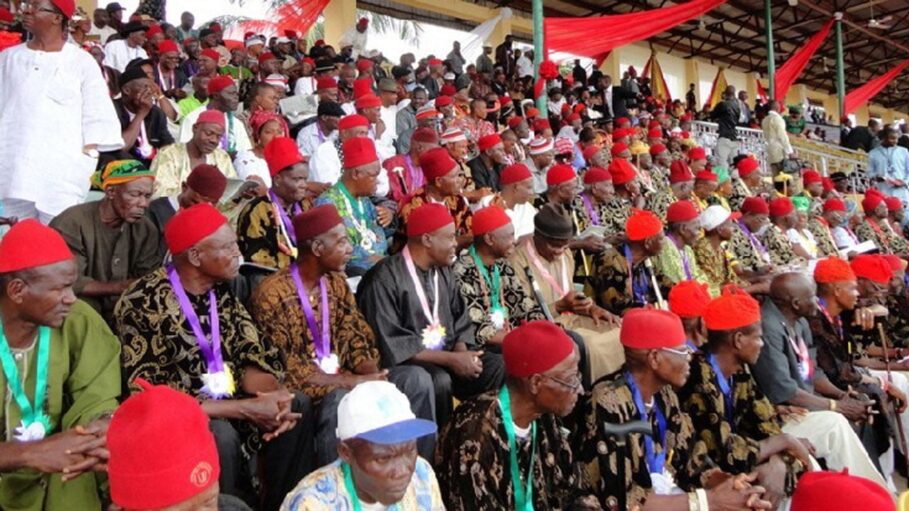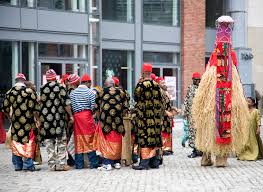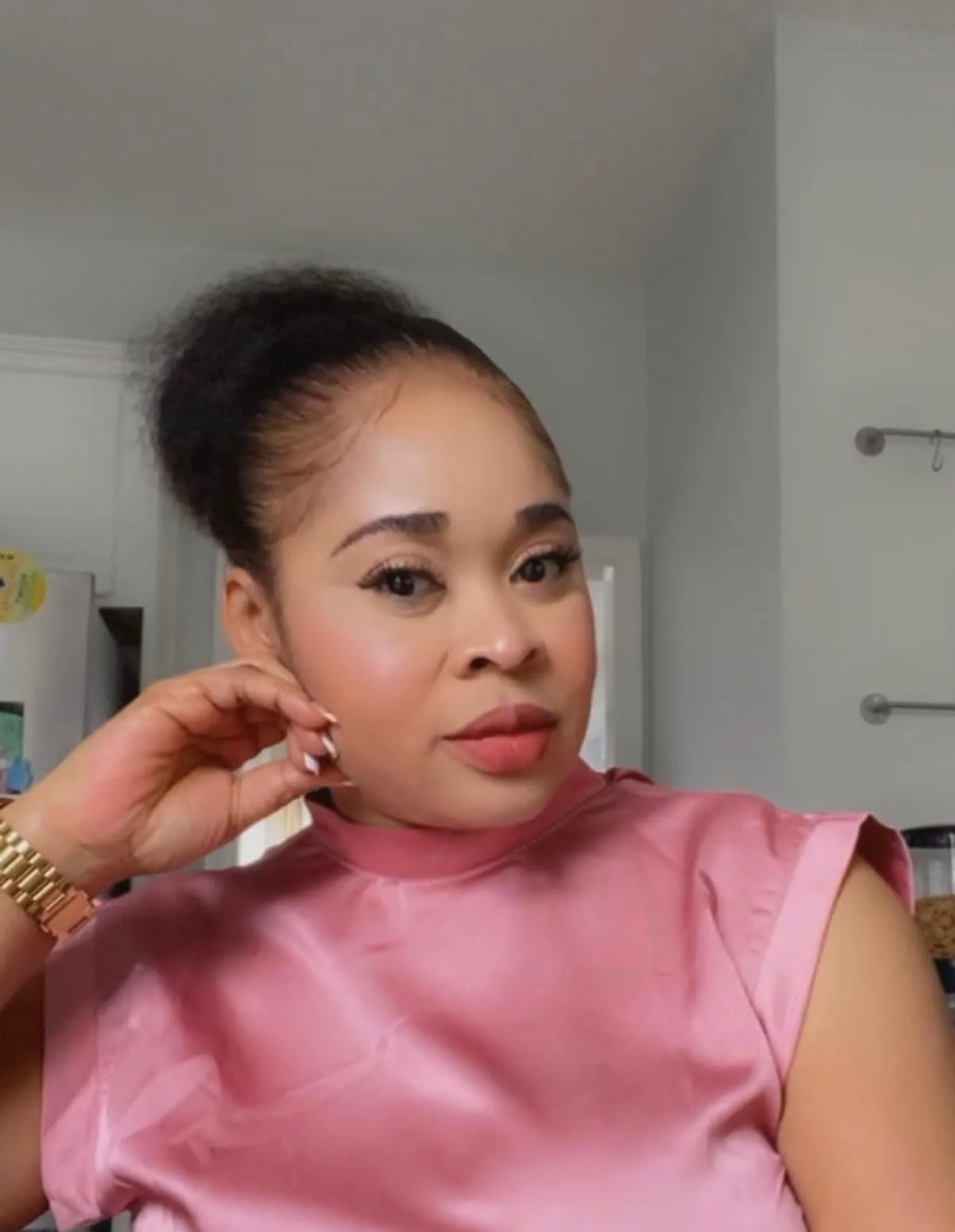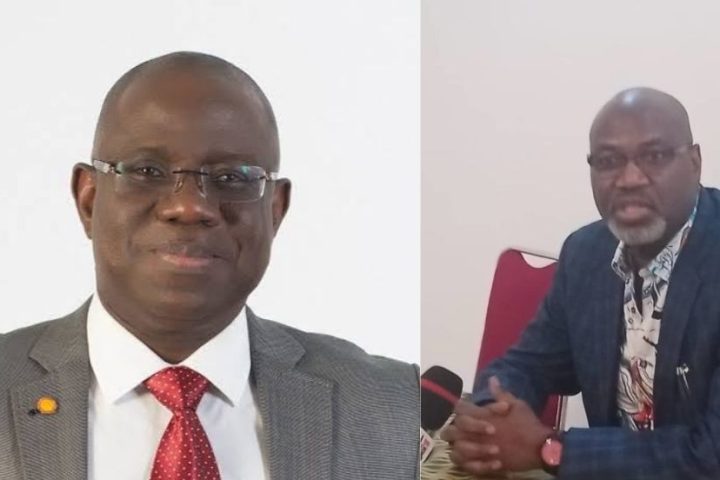By Stacey Ukaobasi Onwuegbuchulam
In Nigeria and particularly in Igbo speaking communities, there is a certain patriarchal interpretation that is assigned to genders, just as for a long time, there is this assumption that every woman married into any home is expected to have a male child.
Women who give birth to girls are often badly treated by their in-laws on the baseless ground of the absence of male children, as if the woman is the creator of children. Scientifically, it has been established that fathers are substantially accountable for the genders of their children.
Join our WhatsApp ChannelTraditionally, it is assumed that the males in every family represent the continuation of the family trees since there is this belief that the females will marry their husbands and leave their fathers and mothers to set up their new homes with their husbands. This was the general idea that governed the traditional Igbo society even as the rest of the world advanced and gone far beyond the mundane consideration of males as the necessary members of their families in the area of continuity. In most advanced societies, where equality of opportunities governs their lives, both males and females enjoy equal rights and there is no room for any sort of discrimination.
The United States of America, for instance, has had such Presidents like Bill Clinton and Barack Obama, whose only offspring are females and who are doing very well after they were grounded in formidable educational trainings. A shocking scenario is that some Igbo people who have migrated to settle in developed Western societies, somehow, still manifest and display this old traditional perception of the males as the most strategic component and indeed members of every family. These people coming from the traditional Igbo conception of discriminating between genders of males and females, have been seen or heard expressing such backward opinion that males are more important in families than females, even with the overwhelming influences of western civilisation all around them in their new places of settlement in the diaspora.
Recently, I encountered a well-written commentary on the iconic judgment of the Supreme Court of Nigeria a few years back which invalidates the age-long discriminatory practice of disinheriting the females of Igboland in Nigeria. One of the things that shocked me is that even some Igbo ladies still nurse the perception that females should not enjoy any sort of inheritance rights in Igboland. There is a particular quote from one of the persons interviewed by a newspaper columnist to give his impression on that judgment.

The interviewee unsurprisingly backed the primitive denial of inheritance rights to females in Igboland by stating as follows: “They have created another round of trouble. By the way, in Igboland, few women, who do not marry, always have a place to stay. The courts should be mindful not to set fire on families. They should also deliver judgments that can stand the test of time.
“A good percentage of women desire to marry, leave their fathers’ compounds and start new families with their husbands without creating division in their fathers’ compound. Why would any sane woman come back to split her father’s family, married or not? That judgment is something else.”
This reaction represents a total rejection of that sound judgment of the highest court in Nigeria which has demolished the age-long discrimination against females. That Nigeria’s Supreme Court’s verdict restoring inheritance rights to Igbo females just like their counterparts in other cultures in Nigeria, has done a lot of generational social justice to females of Igbo origin. But there are still many who do not welcome that judgment of the nation’s apex court.
A corresponding view was shared by Uche Okafor, a lawyer, who told the columnist that the judgment will need distinction or review.
He said: “The Supreme Court judgment needs judicial interpretation/review. The judgment was about an unmarried daughter of a deceased man, who was denied her father’s hereditament. If the woman was married, would the Supreme Court have given the same opinion? Would that not amount to equity aiding double plates for a married woman to get shares from her matrimonial home as well as from her maiden home? I think the judgment needs to be distinguished.”
READ ALSO: MILO Nigeria Partners Real Warri Pikin, Aproko Doctor To Empower Nigerian Children In Sports
I was actually glad to read that another of the stakeholders spoken to by the columnist who identified himself as Chief Akunwebe Emechebe, an Igbo culture enthusiast, disagreed with the lawyer.
Emechebe said the judgment should apply to both married and unmarried daughters of a man.
Emechebe stated, “The court interpreted and applied the law as it is. Our laws – the constitution, the statutes and the international conventions – frown at discrimination against persons on the grounds of sex and not on the grounds of the marital status of a person.
“Unless and until these laws are amended to bring the aspect of married or unmarried in the laws, the position of the laws as it is today is the position taken by the Supreme Court.
“The courts are not interested in whether the female in question is married, unmarried, remarried, divorced, etc., in their decisions.”
The Bishop, Diocese of the Niger, Anglican Communion, Anambra State, Rt. Rev. Owen Nwokolo, reportedly described the judgment as a welcome development.
He said female children were not second class citizens and should not be treated like one.
The cleric stated: “Female children should be accorded the same rights given their male counterparts and therefore should not be discriminated against.
“Families should put the judgment in practice and female children should stand up and claim their rights. It is not only the Supreme Court judgment, but a God-given right and they should claim that right.”
It was then a big shock to note that amongst those interviewed by the reporter, a woman particularly kicked against the Supreme Court’s ruling that primarily recognised female children as equal to male children. The lady, Ngozika Iheagwam, a housewife, saw the judgment as an unwanted reversal of a people’s culture and opined that the ruling would cause chaos in many Igbo societies.
She said: “What concerns the Supreme Court with the Igbo culture? Every woman should look forward to getting married and settling down in her matrimonial home.
“Why should she start going back to her father’s home to start fighting over property with her male siblings? That judgment will manifest absurdity in Igboland. I don’t support it.”
President of Ohanaeze in Anambra State, Chief Damian Okeke-Ogene, said bequeathing property to a man’s daughter was not alien to Ndigbo, and as such, the Supreme Court judgment should not be seen as strange or a surprise to Igbo people.
He said: “Most fathers buy cars, build houses and so on for their daughters upon marriage. So, it’s wrong to say that the Igbo don’t give their daughters their property.
“If a daughter is not married or is divorced, our custom and tradition require the father to provide accommodation for her in his house. If a man has a commercial property, say a house, he can give a part of it to his daughter to manage and earn money from it accordingly. All these are done in Igboland. So, it’s wrong to say that a girl child in Igboland is disinherited from her father’s property.
“But I must say that not everything can be shared between the male and female children of a man.
“Ancestral property is exclusive to male children of a man and our daughters know that very well.”
He added that it would be an absurdity and even an abomination for a man to bequeath such ancestral property to his daughters.
“Who will ever think of a man to give his Obi (ancestral home/house) to a daughter, who may be married to an Ibadan man in the name of equity or law? That’s unthinkable. Therefore, the Supreme Court judgment has limitations or exclusions like any other law, but it is not totally strange to us, the Igbo,” Okeke-Ogene stated.
On his part, the traditional ruler of Nawfia and Umunri, Igwe Chijioke Nwankwo, the Supreme Court judgment could be enforced but would be difficult to implement in most Igbo communities.
According to him, upon marriage, daughters are settled by their parents, who give them certain shares of the family property.
What did the Supreme Court say? The apex court in what has been described as a landmark decision, upheld the right of a female child to inherit the property of her father in a unanimous decision. By that judgment, the court voided the age-long Igbo tradition and customary law, which forbade a female child from inheriting her father’s estate.
The Supreme Court voided the tradition and custom on the grounds that it was discriminatory and conflicted with the provision of the Constitution of the Federal Republic of Nigeria.
The court specifically held that the practice conflicted with Section 42(1) (a) and (2) of the 1999 Constitution.
The judgment was given in an appeal marked: SC.224/2004 filed by Mrs Lois Chituru Ukeje, wife of the late Lazarus Ogbonna Ukeje, and their son, Enyinnaya Lazarus Ukeje, against Ms Gladys Ada Ukeje, who is the deceased’s daughter.
Gladys had sued the deceased’s wife and son before the Lagos High Court, claiming to be one of the deceased’s children and sought to be included among those to administer the deceased father’s estate.
The trial court found that she was a daughter to the deceased and that she was qualified to benefit from the estate of her father, who died intestate (without a will) in Lagos in 1981.
The Court of Appeal, Lagos, to which Lois and Enyinnaya appealed, upheld the decision of the trial court, prompting them to appeal to the Supreme Court.
In its judgment, the Supreme Court held that the Court of Appeal, Lagos, was right to have voided the Igbo native law and custom that disinherit female children. Justice Bode Rhodes-Vivour, who read the lead judgment, held that: “No matter the circumstances of the birth of a female child, such a child is entitled to an inheritance from her late father’s estate.”
Justice Rhodes-Vivour added, “The Igbo customary law, which disentitles a female child from partaking in the sharing of her deceased father’s estate is a breach of Section 42(1) and (2) of the Constitution, a fundamental rights provision guaranteed to every Nigerian.
“The said discriminatory customary law is void as it conflicts with Section 42 (1) and (2) of the Constitution. In the light of all that I have been saying, the appeal is dismissed. In the spirit of reconciliation, parties are to bear their own costs.”
The judgment as observed earlier has evoked mixed reactions from custodians of Igbo culture, lawyers and commentators.
Sociologists have observed that “In many traditional societies, there is an unspoken expectation that women will bear male children to carry on the family name, inherit property, and fulfill cultural traditions.
READ ALSO: Reverse Apartheid: Nigeria’s Igbo Question And The Dangers Of Exclusion
Besides, Scientists say that several third-world countries still suffer gender imbalance, which has affected the way the two sexes are perceived.
The major reason for this desperation for male children is best summarised in the International Journal of Sociology of the Family.
An Emeritus Professor of Sociology at the University of Ibadan, Uche Isiugo-Abanihe, while quoting African beliefs said, “A man who died without a son lived a worthless life; he is inherited by his brothers, and is soon forgotten since his branch of the family tree has ended.”
The International Parliamentary Union says women make up less than six per cent of Nigeria’s parliament. This has demonstrated the obvious historical discrimination that females encounter not just in their families but even in politics.

For instance, a certain statistics have it that from 2010 to 2015, only 38 per cent of federal employees in Nigeria were women on average, according to the National Bureau of Statistics. Nigeria should embrace international best practices in the area of equality of rights.
The Beijing Declaration and Platform for Action undertake legislation and administrative reforms to give women equal rights with men to economic resources, including access to ownership and control over land and other property.
A gender advocate and development consultant, Sumbo Oladipo, stressed the importance of education in empowering the girl child, urging Nigerians, especially mothers, to educate their girls.
“Only the education of a girl child will break this barrier and give the women their right of place in the society,” she said.
This is exactly the reason that I, as a mother of beautiful females, resolved to adequately educate my children because that is a powerful tool that would guarantee that they aren’t discriminated against even in such a patriarchal system like we have in so much of the Igbo communities of Nigeria in West Africa.
Stacey Ukaobasi Onwuegbuchulam is a United States-based Child Rights Activist and the convener/founder of Forum for Child Rights Promotion.

















